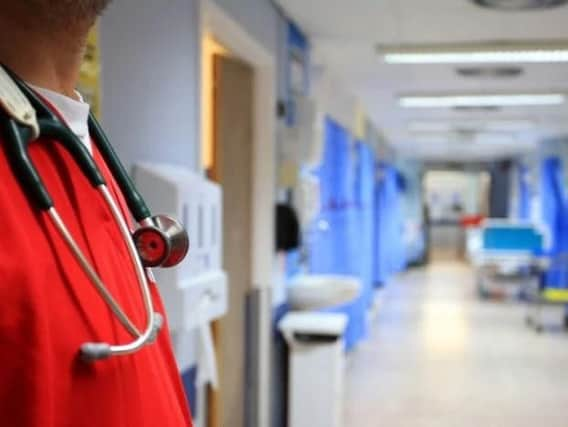Millions of pounds lost by Yorkshire hospitals after key IT failure


Thousands of patients across Leeds and Bradford were hit by delays to test results in the crisis triggered by the failure of an ageing IT system last autumn.
Final figures reveal that the breakdown cost two NHS trusts as much as £5m including lost income from delayed hospital operations and extra costs of outsourcing testing.
Advertisement
Hide AdAdvertisement
Hide AdThe size of the bill was exacerbated as problems continued for more than two months while technicians battled to restore the system.
Scores of operations were postponed, clinics cancelled and routine testing by local GPs suspended during the outage at Leeds General Infirmary.
The bulk of the losses was suffered by Leeds Teaching Hospitals NHS Trust which saw its planned deficit swell by £5m to £26.6m in 2016-17 mainly due to the failure of the system which dates back to the early 1980s.
Officials at Bradford Teaching Hospitals NHS Foundation Trust confirmed the outage cost them £300,000.
Advertisement
Hide AdAdvertisement
Hide AdAn independent review blamed technical problems and human error for the failure of the IT system.
Test results could not be reported electronically and staff were forced to record them on paper for delivery by hand clinicians.
A backlog of 10,000 tests developed at one stage before other hospitals stepped in to deal with samples during the crisis in September.
More than 300 operations and outpatient appointments were postponed and some patients were forced to repeat blood tests.
Advertisement
Hide AdAdvertisement
Hide AdRichard Vautrey, a Leeds GP and deputy chairman of the British Medical Association’s GP committee, said the crisis emphasised the key importance of investing in critical infrastructure.
“The ongoing maintenance of premises and equipment and other areas of capital spending often becomes a low priority when the NHS is struggling to balance its books in other areas as it is now,” he said. “But this only causes problems in future if you don’t make that investment in infrastructure leading to this kind of crisis with the serious impact it had on patient care.”
A spokesman for the Leeds trust said around 75 per cent of the total losses were due to cancelled or delayed operations and consultations which could not take place without key test results.
The remainder was linked to lost income from providing tests for other hospitals, the cost of sub-contracting tests to other laboratories, bills for treating patients who could not be discharged as planned and overtime for staff working to resolve the difficulties. The IT failure affected one of busiest NHS laboratories in the UK typically dealing with 17,000 samples a day from local hospitals and 100 GP practices in West Yorkshire.
Advertisement
Hide AdAdvertisement
Hide AdThe system was not fully restored for more than two months after it was discovered data had not been backed up in some cases since 2010 as ageing technology struggled to deal with increasing volumes of information.
Senior managers at hospitals in Leeds are carrying out a full review of IT and say securing additional funding to invest in infrastructure is one of their key priorities.
Hospital chiefs in Bradford had already planned before the breakdown to end their pathology partnership with Leeds and testing is now carried out in alliance with Airedale NHS trust.